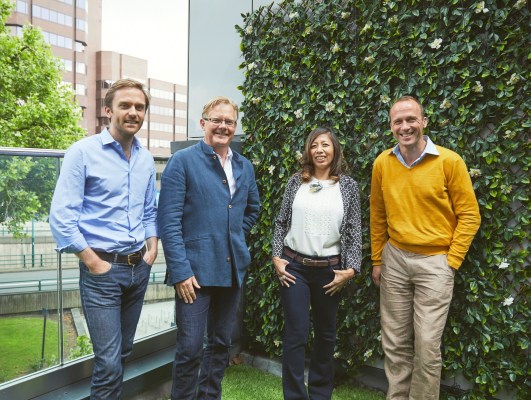If there are some noticeable gaps in the European venture scene, the first is there is still a small number of European entrepreneurs who have built products and scaled and exited and then went on to become investors, relative to the size of the market.
The second is the dearth of VCs genuinely obsessed with product over “the growth numbers” as they are in Silicon Valley.
The third is the latter combined with the capability and willingness to scale up a company post-Seed stage and beyond.
Bucking this trend is the news that Wendy Tan White MBE, one of the UK’s best known entrepreneurs and angel investors, is joining BGF Ventures. BGF invests £1 million to £6 million in early-stage UK technology companies aimed at being global successes.
Now, a new partner in a fund is not always news, but what is different is Tan White’s pedigree.
She was previously co-founder and CEO of Moonfruit.com, the website builder which was sold to Yell Group (now Hibu) in 2012 for $37 million. That journey was as long and arduous as an entrepreneur can get, from the early 2000s. So she has the spurs. Furthermore, she joins from the post of General Partner of Entrepreneur First, officially Europe’s hottest accelerator right now.
Prior to this Tan White studied computer science at Imperial College, London, is an advisor to the Dyson School of Design Engineering and she was inducted into the The Europas Hall of Fame in 2017, in partnership with her husband Joe White MBE, co-founder of Moonfruit.
As an angel, Tan White has made 16 personal investments and has mentored 40+ companies from inception to funding. She was an early investor in OpenCosmos, Cleo, Q-bot, Kwiziq and Magic Pony, the machine learning startup that was sold to Twitter last year for $150 million.
Meanwhile, BGF Ventures’ £200 million fund is now entering its third year of investing inside the UK for companies that can scale internationally.
To date it’s invested almost £50 million in 18 UK companies. These include Firefly Learning, Gousto, Hoop, Streetbees and Roli.
Now, to explain: the “Business Growth Fund” has £2.5 billion of capital, while BGF Ventures is the £200 million tech venture part of the organisation. It also provides growth capital to SMEs across all sectors including tech and quoted companies.
What’s changed? Certainly the context of the UK scene has changed. While the US proliferation of seed funds and micro VC from 2011 onwards powered startups with seed funding, series A investors were not keen and it became cheaper to get seed funding.
In the UK, over the last 6 years, about £450 million VC investment arrived in 2011 versus £2 billion in 2016.
Tan White tells me: “We are scouring the UK for the brightest, boldest entrepreneurs with global ambitions, to help create the iconic, industry-changing companies of the future. We invest £1M – £6M in early-stage UK technology companies that we believe have the potential to be global successes. What excites us is not the size of your company today, but the potential tomorrow.”
Where are the gaps in funding right now? Series A?
“US proliferation of seed funds and micro VC from 2011 onwards fuelled volume of startups with seed funding and gave them a lifeline but at some point all these companies need to be funded again at series A to scale, typically these companies use seed funding for finding product market fit, revenue is not the priority, they will use any revenue to grow or innovate rather than generate profits so need to go for venture again to scale. Volume of A funds has not grown at the necessary rate to fund the increase in seed funded companies. Also series A investors remain discerning, it’s become cheap and easy to get seed funding which is great for experimentation but series A and B investors only want the best as they are deploying larger chunks of capital,” says White.
The UK has followed suit with an increasing volume of new seed stage funds appearing over the last 2 years, stimulated by the BBB and EIF. Also the SEIS and EIS tax breaks have flooded the market with ‘money’ vs smart money, as have crowd funding platforms.
I also asked her what is the future for U.K. VC with the withdrawal of EIF funds.
“EIB manages the EIF which currently accounts for more than a third of investment in UK-based venture capital funds. Their ‘suspension/slowdown’ of funding into the UK funds of Brexit has directly impacted funds that were about to close and the companies they had committed capital too. Confidentially I know of 4 funds directly effected… One of our EF companies lost one commitment because their investors could not close their fund in time due to the EIF suspension. EIB agreement with Funding Circle to lend £100m through it’s P2P platform is also at risk.”
